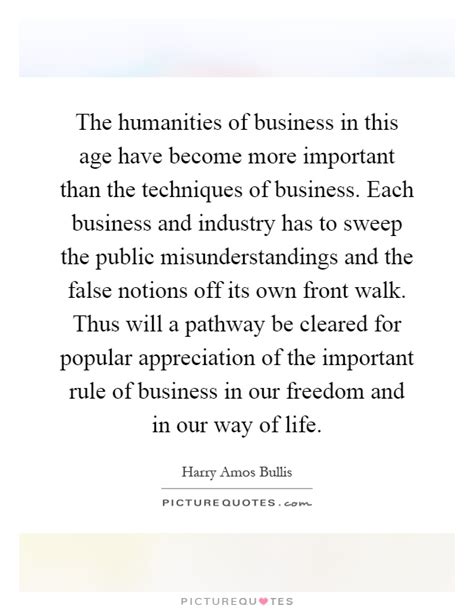A Quote by Harry Amos Bullis
The humanities of business in this age have become more important than the techniques of business.
Quote Topics
Related Quotes
The humanities of business in this age have become more important than the techniques of business. Each business and industry has to sweep the public misunderstandings and the false notions off its own front walk. Thus will a pathway be cleared for popular appreciation of the important rule of business in our freedom and in our way of life.
The key thing is to invest in the future and what that means is when you're deploying technology or you're a technology business, is to make sure that you're keeping on the innovation cycle, where you're both creating and adopting the new business practices, and the new techniques in order to drive your business the right way.
The key thing is to invest in the future, and what that means is - when you're deploying technology or you're a technology business - is to make sure that you're keeping on the innovation cycle, where you're both creating and adopting the new business practices and the new techniques in order to drive your business the right way.
But what we know, we who are either observers of a business we once were in and loved, or are people within it now, our business as a whole, when it is not obsessed with the business of business, is eaten up with a form of cultural conservatism which is truly amazing. Indeed, more often than not it is eaten up with pure reactionary-ism.
It is way less certain to be a wonderful business in the future. The threat is alternative mediums of information. Every newspaper is scrambling to parlay their existing advantage into dominance on the Internet. But it is way less sure [that this will occur] than the certainty 20 years ago that the basic business would grow steadily, so there's more downside risk. The perfectly fabulous economics of this business could become grievously impaired.































